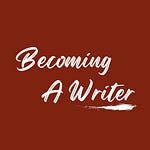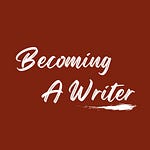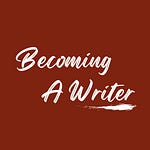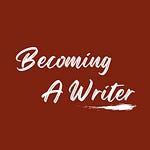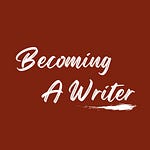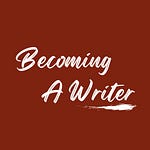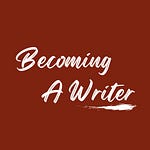Hello, my writer friends! Rubina here. For our fifteenth conversation, we are going to talk about how treating your writing like an experiment will get you into writing mode.
With my first attempt at novel writing, I was obsessed with two thoughts.
First, I needed to know where the plot was heading – a.k.a. the outline. Second, I needed the guarantee that it would be a success. And as every writer on YouTube was preaching that having an outline was their secret to writing success, I assumed that is how you write and succeed at a novel. I HAD to be a plotter; there is no other way.
It wasn't until I was frustrated beyond measure with the plotter approach that I allowed myself to look into the pantser approach.
When you look up the meaning and difference between plotters and pantsers, you come up to the following -
A plotter is someone who meticulously plans and outlines their story before they begin writing. They need to know every heartbeat and every breath of the story before they allow themselves to write. A pantser is someone who likes to fly by the seat of their pants. They write without an outline and see where the story takes them.
As I dug deeper into this plotter-pantser debate, this time from the pantser approach, I discovered a belief. This belief is so subtle and under the radar that no one notices it. The belief is that, somehow, plotters and plotting are superior to pantsers and pantsing. Just rewind and listen to the definitions again and see how weighty being a plotter sounds than being a pantser. As if flying by the seat of their pants is an easy task. It means to do something difficult without the necessary skill or experience to improvise. Does that mean it is any easier than plotting? Even our word processors won't accept the word 'pantser' and draw that red squiggly line under it.
After more research into the pantser approach and reading Writing Into The Dark by Dean Wesley Smith (the holy book for pantsers, according to me), I decided to give it a shot.
If Diana Gabaldon, Stephen King, Dean Koontz, Ernest Hemmingway, Neil Gaiman, and George R R Martin can "fly by the seat of their pants," so can I.
The result? I am having the best writing time of my life! The same novel that was breaking my heart was now making it dance like a happy puppy.
What I have realised is writing a book is like reading a book or watching a movie. If you knew the end before you even began the book or movie, it would be no fun indulging in them. Similarly, if you knew the end of your novel before you started writing it, why would you even bother writing it? Consciously, you know you need to write the novel, but subconsciously, you are already done with it. So, it makes no sense to the brain to make the effort to write it all out.
Now, when I sit down to write, be it my essays or my stories, I say to myself, "Let's see what happens."
I let my writing lead the way. I let the characters, dialogues, scenes, and what I call my "Idea Pops" guide me to the next scene. And then, the next. And next. I see where it takes me and what it wants me to see. Sometimes, it would show me things I could have never consciously come up with. A dialogue, a scene, a thought, a character that will take me completely out of the blue and make me feel its magic.
Does this mean our fellow writer friends who are plotters are doing it wrong? No. If plotting works for them, that's great! More power to them. But if you are forcing yourself to think and accept that plotting is the only way to write your book, then you have an incomplete picture of what writing is. Writing doesn't have to be either-or; it can be one or both.
And the secret ingredient to experimenting is having faith - in yourself and your writing. Having faith means trusting the process. [Remember the formula of trusting the process from our seventh conversation? - Trust The Process = (Self-Belief + Hope + Action in the right direction) x Love]
You must believe you have what it takes to write your books. You must believe that every piece of writing you write is worth it. Even if it doesn't bring you the results you (your ego) want, you will get the results you (your writer soul) needs.
As Rick Rubin says in his book The Creative Act: A Way Of Being –
"With unshakable faith, we work under the assumption that the problem is already solved. The answer is out there, perhaps it's obvious. We just haven't come across it yet."
And I can tell you from experience that unshakable faith will make you with boldness and confidence cross the barriers that are holding your writing back. Then, you'll embrace the writer self of your dreams.
Well, that's it for today. Next time we meet, we'll talk about how having fun is the key to a satisfying writing session.
Until then, keep writing, my friend.
📚 My non-fiction book for writers -
Soul Writer vs. Social Writer - Find Out Which One Are You?, Why Is It Important, and Finding Your Sweet Spot.
Amazon US | Amazon UK | Amazon India
🏡 My homes on the internet -
Spotify | Apple Podcast | Amazon Music
YouTube | YouTube Music | Instagram (Podcast) | Substack
A Rubina’s Bojra Production
Directed By: Rubina Gauri Gomes
Produced By: Rubina Gauri Gomes, Books She Has Read, And Life Lessons She Has Learnt
Written By: Rubina Gauri Gomes
Host & Voice Talent: Rubina Gauri Gomes
Music by: Happy Lazy Loop by Serge Quadrado (At Adobe Stock)
Audio-Visual Edited By: Rubina Gauri Gomes
Marketed By: Rubina Gauri Gomes
Fueled By: Coffee ☕
Made With Love, For Fellow Writers And Creatives.🤍






